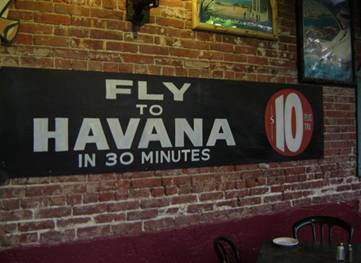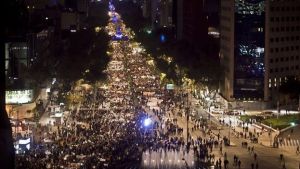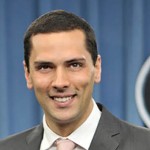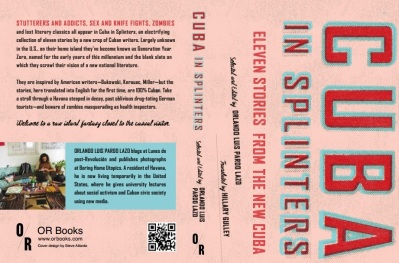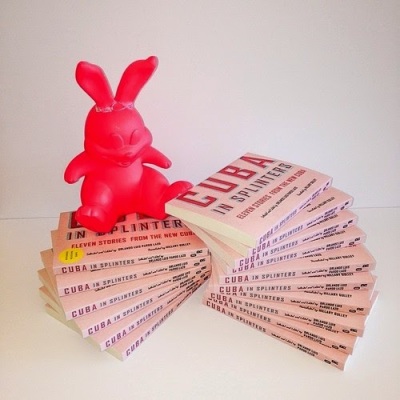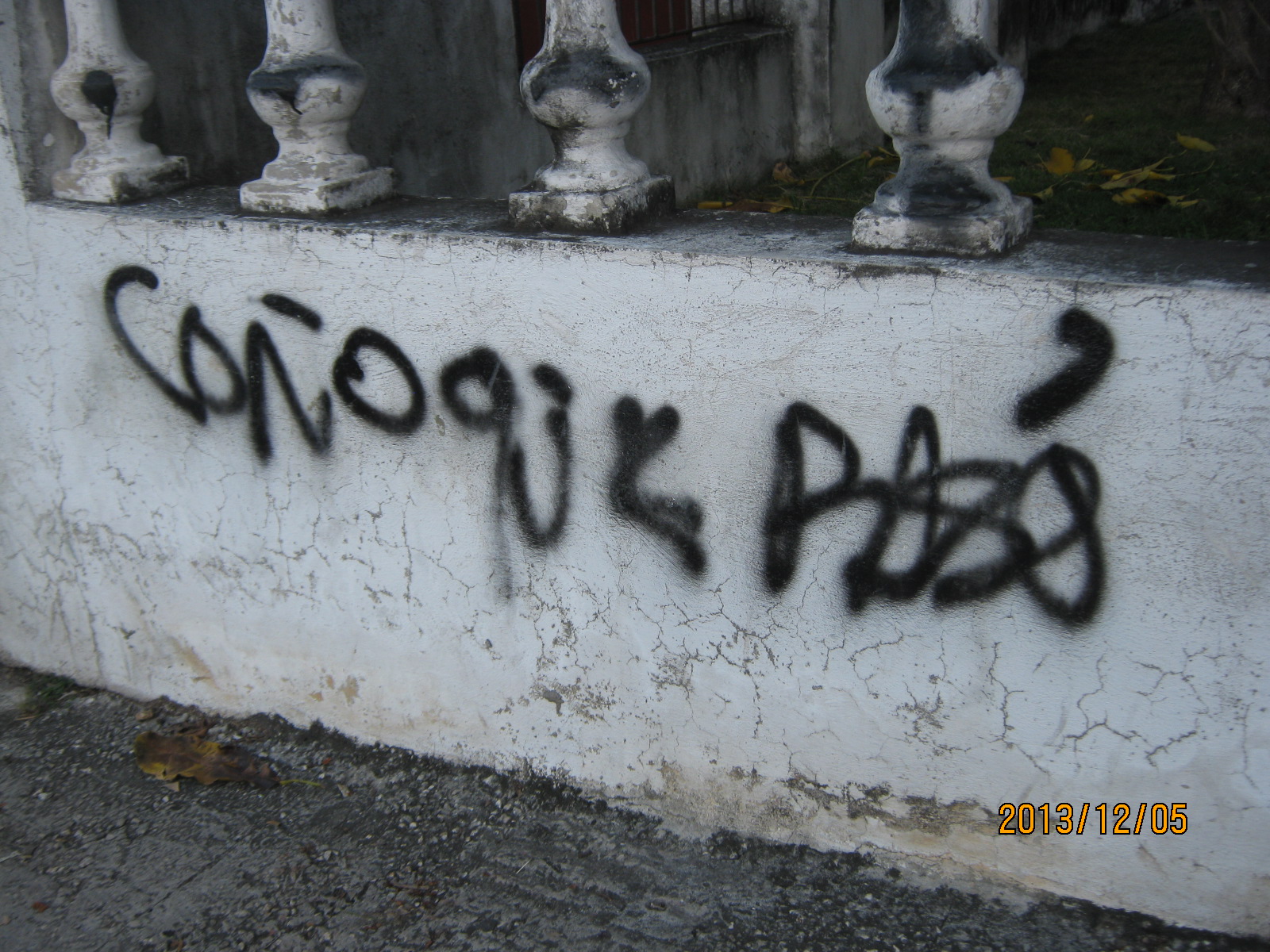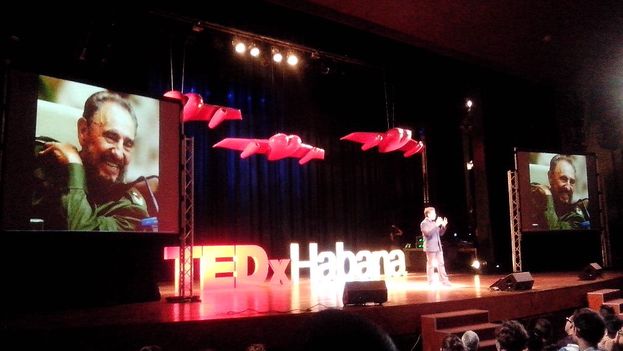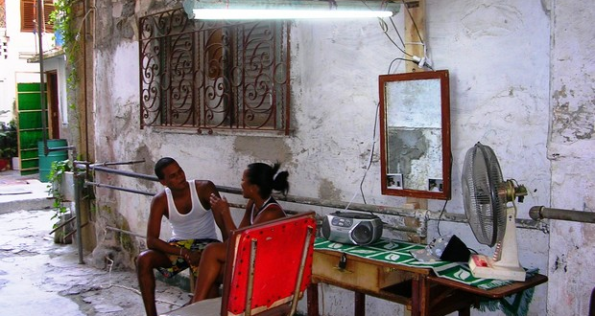 Just as with most successful businesses in Cuba, the owners of Leyenda Habana, an elegant restaurant in El Cerro, surrounded by ranch houses, are white.
Just as with most successful businesses in Cuba, the owners of Leyenda Habana, an elegant restaurant in El Cerro, surrounded by ranch houses, are white.
Two miles to the east of Leyenda Habana, in the poor and mostly black neighbourhood of San Leopoldo, the iconic private La Guarida restaurant, where US congressmen and the Queen of Spain have dined, also has a white proprietor. And, unless something has changed, the chef is black.
I invite you to visit glamorous bars like El Encuentro in Linea and L, Vedado: Shangrilá, in Playa, or El Slopy’s in Vibora Park, very near to La Palma; central crossroads in Arroyo Naranjo.
Apart from being comfortable and with efficient service, the common denominator is that the owners are white. Black people work in the kitchen, or, if they are very qualified, and look good, they dispense daiquiris and mojitos behind the bar.
The waitresses usually are white, young girls with beautiful faces and spectacular bodies. Could be pale-skinned mulattas who spend a fortune on straightening their hair to be similar to many white women.
The owners of rental properties with swimming pools or luxury apartments are also white. Or the owners of fleets of American cars and jeeps from the 40’s and 50’s, fitted with modern diesel engines, used as private taxis in Havana.
Ignacio, who has sun-tanned white skin, owns six automobiles and three Willys jeeps, made sixty years ago in the Detroit factories. Every day he turns over 600 Cuban convertible pesos (CUC).
“Part of the money I invest in gasoline and in maintenance of the cars. I make juicy profits, but my business is in a judicial limbo as it is not something envisaged in the self-employment regulations. For the moment, the government lets us do it,” he indicated while he drinks a German beer.
When you ask him why it is that in the most successful private businesses, 90% of the owners are white, he replies: “Several reasons, ranging from subtle or open racism on the part of many business people, to economic reality, in that black Cubans are the ones with the lowest standard of living and receive fewer remittances from family abroad.”
Carlos, a sociologist, considers that not all of the blame for negroes and mestizos not occupying prominent positions in private businesses can be attributed to the Fidel Castro regime.
“This is a long-running story. When in 1886 they abolished slavery in Cuba, the negroes and mestizos started off at a disadvantage. They didn’t have property, knowledge or money to invest in businesses. They moved from being slaves to wage earners. They gained prestige and a better position in society by way of sport, music and manual trades.”
According to the sociologist, “The Revolution involved the negroes in the process, dressing them up in olive green and sending them to risk their lives in African wars. But in key positions in the economy, politics or audiovisual media, there was an obvious white supremacy.”
For Orestes, an economist, “We cannot overlook the detail that 80% of the Cubans who have done well in exile are whites. The first wave of emigrants to Florida were educated white people, nearly all business people with capital. And those who left without money, thanks to their knowledge and hard work, moved forward and triumphed in the US society.
And he adds that, in the subsequent waves in 1965, 1980 and 1994, there was a larger percentage of negroes and mestizos, but they were ill-prepared and they worked in poorly paid jobs in the United States. “And because of that, they sent less money to their poor families in Cuba,” the economist explained.
The situation was capable of change. Now, dozens of sportsmen, mulattos and negroes, play abroad and some earn six figure salaries.
Although José Dariel Abreu, who plays for the Chicago White Sox and earns $68 million over seven years, in theory cannot invest one cent in Cuba, because of the embargo laws, one way or another, thousands of dollars get to his relations in the island and they are able to open small businesses in their provinces.
In spite of the fact that the majority of the owners of currently successful businesses in the capital are white, reggaeton singers, jazz players, musicians who commute between Cuba, the United States and Europe, have opened businesses or have provided finance for their family members.
The reggaeton performer Alexander, the write Leonardo Padura or the volleyball player Mireya Luis, among others, have opened bars, restaurants and private cafes with part of their earning in hard money.
But they are the few. Most of the negroes or mestizos who have permits to work for themselves, work twelve hours filling matchboxes, repairing shoes or open up a small shop in the the entrance to their house, with no grand pretensions, trying to earn 200 or 300 pesos a day.
Nearly always the competition from white people with bigger wallets gobble up the self-employed negroes or mulattos. Leonardo, a negro resident in La Vibora, in 2010 put up a jerry-built stall made of sheet metal painted ochre in the garden of his house.
“Things went well. Until in the corner, by the house, a relation of a general opened a modern, well-stocked cafeteria. From then on, my earnings have collapsed. I am thinking of closing,” he says. The owner and employees of the business competing with Leonardo are white.
Although in this case, the advantage didn’t lie in skin colour. Because in Cuba, if, apart from having money, you have a relative who has the medals of a general, that will open many doors. Including those which should remain shut.
Iván García
Translated by GH
13 September 2014


